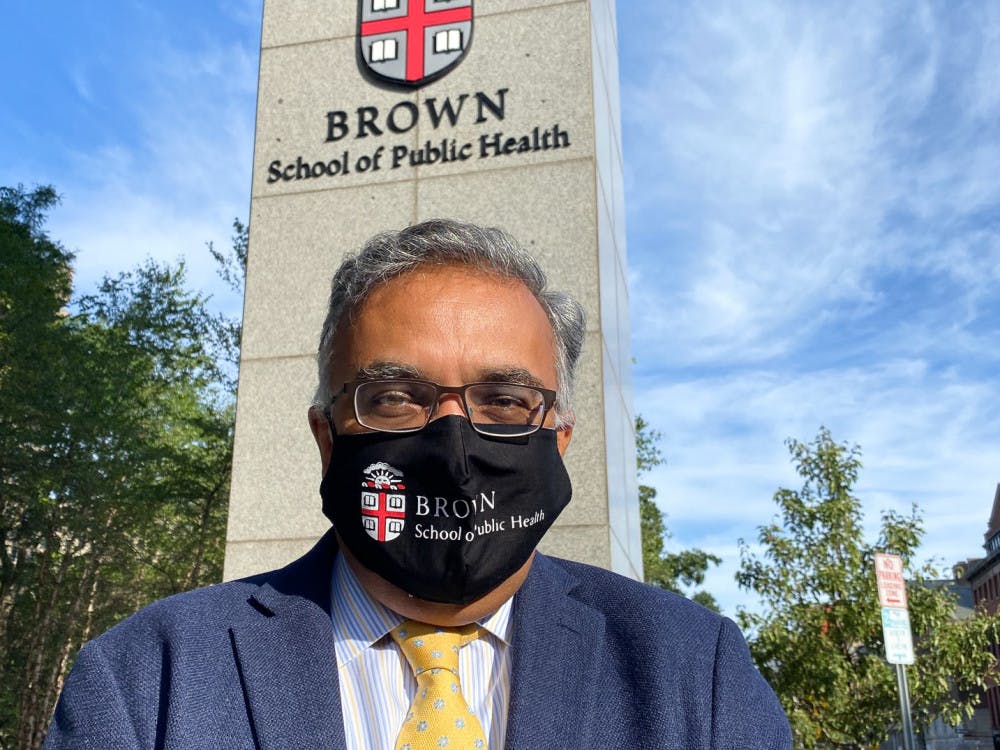In his new role as the Dean of the School of Public Health, Dr. Ashish Jha will use his expertise to advance public health at Brown by building upon its strategic plan and ensuring academic excellence within Brown’s interdisciplinary environment.
Jha began his role Sept. 1, and is the former faculty director of the Harvard Global Health Institute. He has been a recurring figure in national media coverage of the COVID-19 pandemic and uses his Twitter, where he currently has roughly 92,000 followers, to provide commentary on international pandemic response.
Jha is active on Twitter and said he’s not running any of his tweets by the Office of Communications. “At many universities they would say, ‘give up your Twitter handle or give up your dean job,’ and thank God no one has asked that here, because I’m not sure what I would pick,” Jha told The Herald.
“I am somebody who wants to see change in the world, and doesn’t feel very easily satisfied with where the status quo is,” Jha said.
At the same time, Jha said he also tries to follow a “don’t screw up something that is already working well” mentality, something he attributed to his mentor, Dr. Julio Frenk. Jha plans to build upon the School of Public Health’s strong foundation and expand its leadership in global public health.
Among his priorities, as dean, Jha would like to address climate change. This topic is “a classic example where people in public health have to get out of public health alone,” Jha said. The pandemic has also shown that, when public health works well, it is deeply interdisciplinary.
Jha also hopes to expand pandemic preparedness and response and plans to position the University “to be one of those places that drives the knowledge that we need to do better on pandemics in the future.”
Additionally, Jha wants to collaborate with the University’s Data Science Initiative to perform health-focused work. “We are at a point where we can take data across platforms, apply these new tools and impact population-level health in a very different way,” Jha said.
From an administrative perspective, Jha said has spoken with faculty leaders about “how to be more anti-racist and active in our efforts against racism,” including re-evaluating admissions and hiring.
“I will put out some very clear goals about what we, as a school, will achieve in the next few years,” he said. “And need to be held accountable to making them ambitious enough.”
Dr. Ira Wilson, chair of Health Services, Policy and Practice, comes from the same clinical training pathway at Harvard as Jha. Wilson noted Jha’s commitment to combating “anti-Black racism and to making sure that we in the School of Public Health are not just doing our part, but are leaders in the way in which we address these problems” on campus and beyond, Wilson said.
The pandemic reinforced his decision to join the Brown community, where Jha said there is active interdisciplinary faculty engagement across Brown’s schools of study. Professor of Epidemiology in the School of Public Health Stephen Buka who, like Jha, studied at Harvard, agreed that “collaboration across departments is extremely important to bring forward the impact of public health.”
Jha’s first weeks as dean have already shown him how unified the University is. “I realized very quickly that I’m part of a university where all of us feel responsible for the whole thing. It’s a very different model than other universities, and it expands my horizon beyond the School of Public Health,” Jha said.
Jha’s commentary in national media coverage of the COVID-19 pandemic brings positive visibility to the school, Buka said. Wilson agreed that such coverage is extraordinarily positive, and he added that Jha also has conversations behind the scenes with legislators about COVID-19 relief funding.





